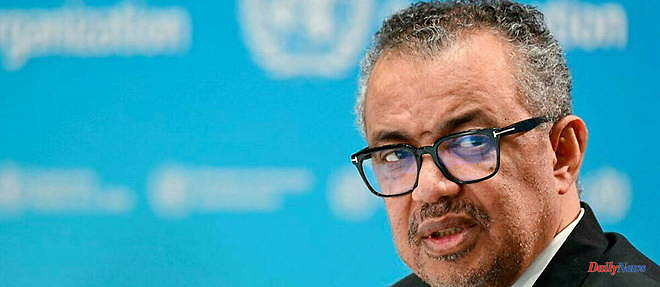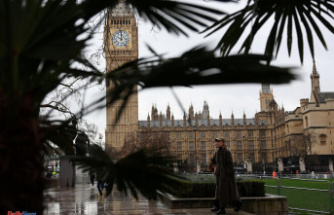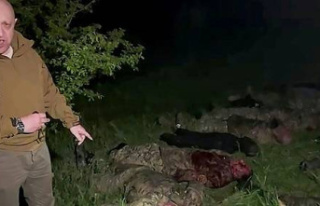"It is with great hope that I declare that Covid-19 is no longer a health emergency of international concern", announced, Thursday, May 4, Tedros Adhanom Ghebreyesus, Director General of WHO. The organization believes the virus is sufficiently under control. The maximum alert level, the highest possible, was decreed on January 30, 2020, a few weeks after the detection, in China, of the first cases.
Over this period, the Covid-19 will have undermined the global economy and widened the inequality gap. But above all, it will have caused the death of "at least 20 million" people, according to the WHO, while the organization's dashboard showed just under seven million officially recorded deaths.
The experts consulted by the Director General judged that "it was time to move on to a long-term management of the Covid-19 pandemic" despite the uncertainties that remain on the evolution of the virus.
Not enough to completely reassure Maria Van Kerkhove, in charge of the fight against Covid-19 within the WHO. The crisis phase of the pandemic "is over, but not the Covid", she warned. "The worst thing a country can do now is use this news as a reason to let its guard down, dismantle the systems it has built, or send the message to its people that Covid-19 is not nothing to worry about," added Tedros Adhanom Ghebreyesus.
Experts had warned: to get out of this pandemic, only the vaccine would be effective. Appearing in record time at the end of 2020, it has been an indisputable scientific success, especially those with messenger RNA, implemented for the first time. But there too, they highlighted all the inequalities that reign on the planet, because they were first monopolized by the countries which could afford to pay the high price, leaving the others on the side of the road for very long months.
The long queues of Brazilians with huge oxygen cylinders to save a relative from asphyxiation marked, like the images of the countless pyres in India to burn the bodies.
But this technological breakthrough has been and continues to be strongly opposed by antivaxers, who have mobilized en masse and cast suspicion on vaccination in general, backed by massive disinformation campaigns on social media.
In 2020, it took three months and the use of the term "pandemic" by the WHO for States and populations to realize the seriousness of the situation and for sometimes very restrictive health measures - up to a long time. months of confinement – be put in place. Sars-CoV-2, against which no vaccine existed, had already well started its deadly journey which would see it emerge very quickly all over the world.
The fight against the pandemic was invented gradually, often in disorder, as illustrated by the chaotic management of Donald Trump's presidency, often deaf to scientific recommendations.
The world is now looking for the best way to avoid the next health disaster. But the international community has not yet been able to determine with certainty how this virus had mutated into a form that can be transmitted between humans.
If, a priori, the first cases were detected at the end of 2019 in Wuhan, China, two theories clash: leak from a laboratory in the city where these viruses were studied or intermediate animal having infected people who frequented a local market . The obstruction of the Chinese authorities prevents progress in the investigation into the origins.
At the WHO, member countries have also begun to discuss a future binding agreement that would better nip the next pandemic in the bud and avoid repeating the same mistakes. Because the question is not if, but when it will happen.












